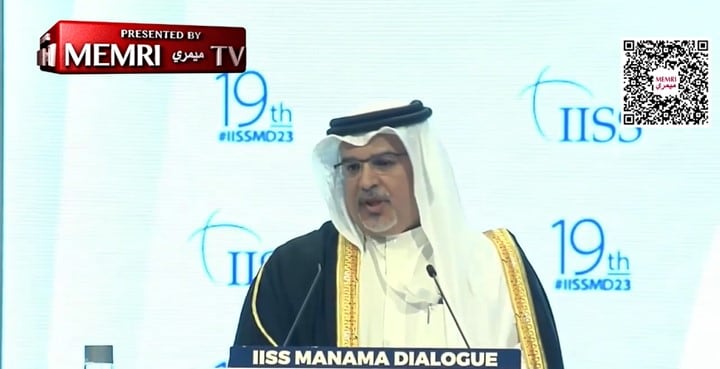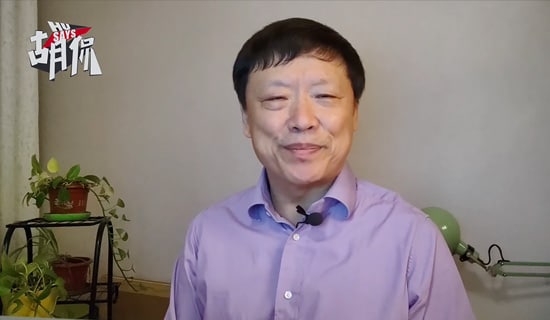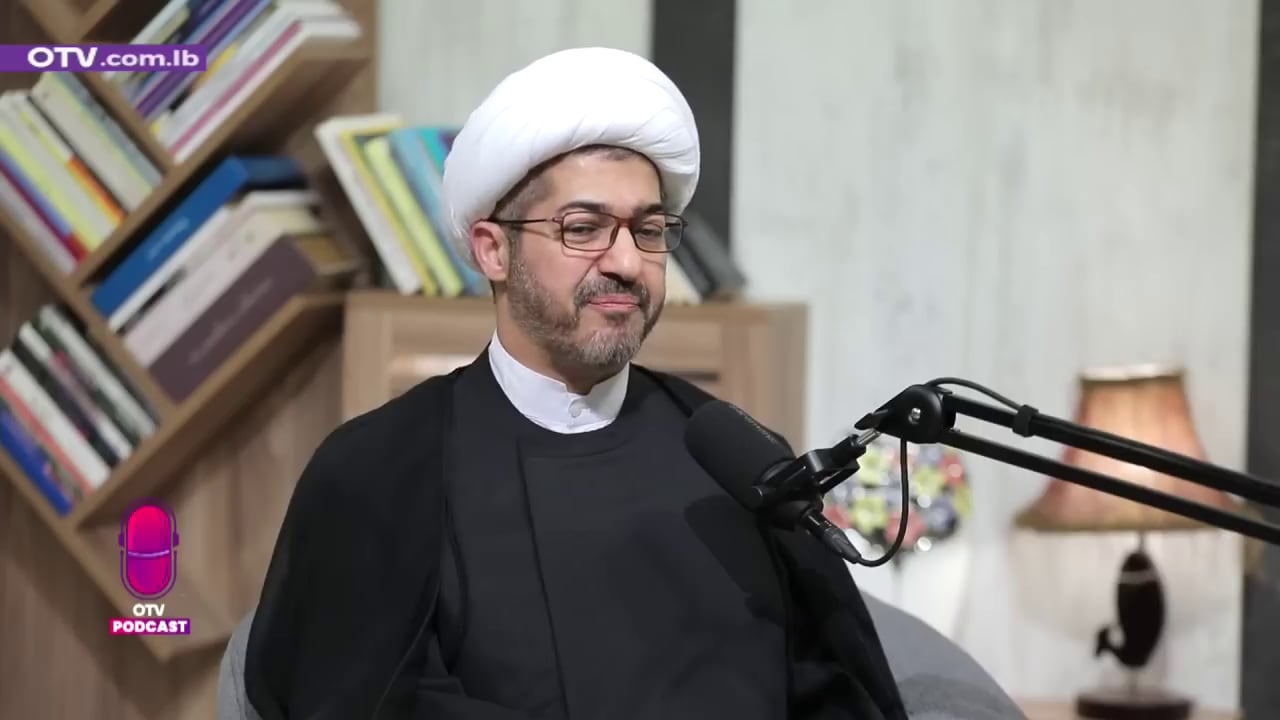
Bahrain's Prime Minister and Crown Prince Salman bin Hamed Al Khalifa said in his November 17, 2023, keynote address at the IISS Manama Dialogue forum, that both Islam and Judaism hold the protection of innocent life as a "duty and moral responsibility." He unequivocally condemned the Hamas October 7 attacks, calling them ""barbaric" and "horrific," as well as Israeli airstrikes against Gaza. Al Khalifa said that they are both reprehensible and must stop. He called for the release of all the women and children held hostage by Hamas in exchange for noncombatants, women and children, held by Israel. Al-Khalifa called for a ceasefire that would lead to calm in the region, which would be followed by a two-state solution. Crown Prince Salman bin Hamed Al Khalifa's statement was streamed live on the forum's YouTube channel.

Crown Prince Salman Al Khalifa: "I had the honor of delivering the Bahrain's speech at the Islamic conference, in the Kingdom of Saudi Arabia, ably organized, I must say. And this speech is going to be slightly different. This is not a positional speech, with regurgitated copy to be repeated over and over again.
"Both in Islam, and in Judaism, the protection of innocent life is a duty and a moral responsibility. In the Koran, it says that the killing of an innocent -- and 'innocent' is clearly defined, as one who has not spread corruption in the land, or committed murder-- is akin to killing all of mankind. And in the Abrahamic faith, the saying is: 'To save a life is to save all of mankind.' How wonderful. Now, both sides in this conflict haven't lived up to that. And I think our condemnation must be to both.
"I condemn Hamas unequivocally. This is so everybody in the room can understand that I stand on the side of civilians, and innocents, and not on the side of political posturing. The attacks on October 7 were barbaric, were—how can I put it—they were horrific, they used—they were indiscriminate. They killed women, children, elderly—did not matter. They hit civilian institutions and they hit military targets.
"And on top of that, it seems it's now OK now to grab hostages and take them away and speak about it as if it's an act of war. That is something that we condemn. And we condemned it on October the ninth, I believe, or eighth.
"Now, Israel: I unequivocally condemn the air campaign that resulted in the death of over 11,000 people in Gaza, 4, 700 of which are children. Now both of these actions have led to the death of innocents. Both of these actions did not save the entirety of mankind and in effect are the equivalent of killing all of mankind. Both are reprehensible. Both must stop. And both are a thing that we must deal with with the greatest care, moving forward. Because what we need to do is to break this cycle. And let me speak a little bit prescriptively about how I think this can be achieved.
"Two of the most important things we must do today are to get the hostages out, and in order to do that we have read in Open Source that the state of Qatar is working alongside with its partners in the United States, and in Israel, and with Hamas, to release hostages. In exchange, we read –this is not corroborated—for prisoners who are also held within the state of Israel, now this is to release women and children, on both sides. Noncombatants, innocents. And this I believe is one component of what will achieve a break in hostilities. You want to call it a cease fire, you want to call it a pause, you can call it whatever you want. The intention is a break so people can take stock, people can bury their dead. People can finally start to grieve. And maybe people can start to ask themselves about the intelligence failure that led to this crisis in the first place. But let's get to that later.
"And the second thing that I think is needed is for the role of international law to be fully implemented in the conduct of war, and that is to allow the access of humanitarian aid. We have seen what has happened at the Shifa Hospital, and al-Quds Hospital, name it—any facility that is caring for the weak, the young, and the sick. We need to be sure that we can provide them with medicine. We need to be sure we can provide them with fuel so they run their machines, their incubators. We need to be providing the people of Gaza with food. And I genuinely believe that the only way to achieve this is to achieve this hostage trade as soon as humanly possible.
"So from this stage I hereby call on Hamas to release the hostages, the women and children, that they hold in exchange –and I call on the Israelis—to release the women and children that they hold in exchange so we can get some sense and a few days, or weeks, or months, or maybe years of peace and calm.
"I don't think any Arab leader has called on Hamas to release the hostages. So it is a time for straight talking. It is a time for political positioning, and for the perpetuation of poisonous narratives, opposing narratives must no longer be our methodology. We are all here to end this war. I don't care who started it, I don't care who will end it. I care that we all work together to make sure that it ends as quickly as possible.
"So building on that, we all know that the conflict didn't start on October the 7th. This latest escalation did, but this conflict has been ongoing, an open wound for the past 80 years. Here's the kicker: No real security will ever be realized until a real two-state solution is found. So preserving this path to peace from us in the region, and primarily from the great powers, and specifically from the United States. We believe the United States is indispensable in leading this process.
"So if that is the case, let's try and draw some red lines, somewhat along the lines of the Tokyo Declaration. And let us be extremely clear about what matters to the Kingdom of Bahrain. There must be no forced displacement of Palestinians in Gaza, now or ever. There must be no reoccupation. There must be no reduction in Gaza's territory. And on the other side, there must be no terrorism directed from Gaza against the Israeli public. So that is very clear. Those are the red lines.
"And central to this, central to finding the two-state solution, is that the Palestinian people's hopes and aspirations must be a percentage of any post-crisis government. In the immediate aftermath of the war, conditions must be set to deliver elections. This is something President Mahmoud Abbas called for at the Islamic Conference. This is a key demand. And the Palestinian Authority is the sole legitimate representative of the Palestinian people today. Listen to what he is saying: Elections will lead back to a strong, unified leadership across Gaza and the West Bank, that can deliver hope and prosperity to the Palestinian people for years to come.
"And not only that. This organization, this process, must lead to a serious interlocutor and partner in delivering a just and lasting peace with a viable and independent Palestinian State as its core. Also – deliver security and stability to its Israeli neighbor."













